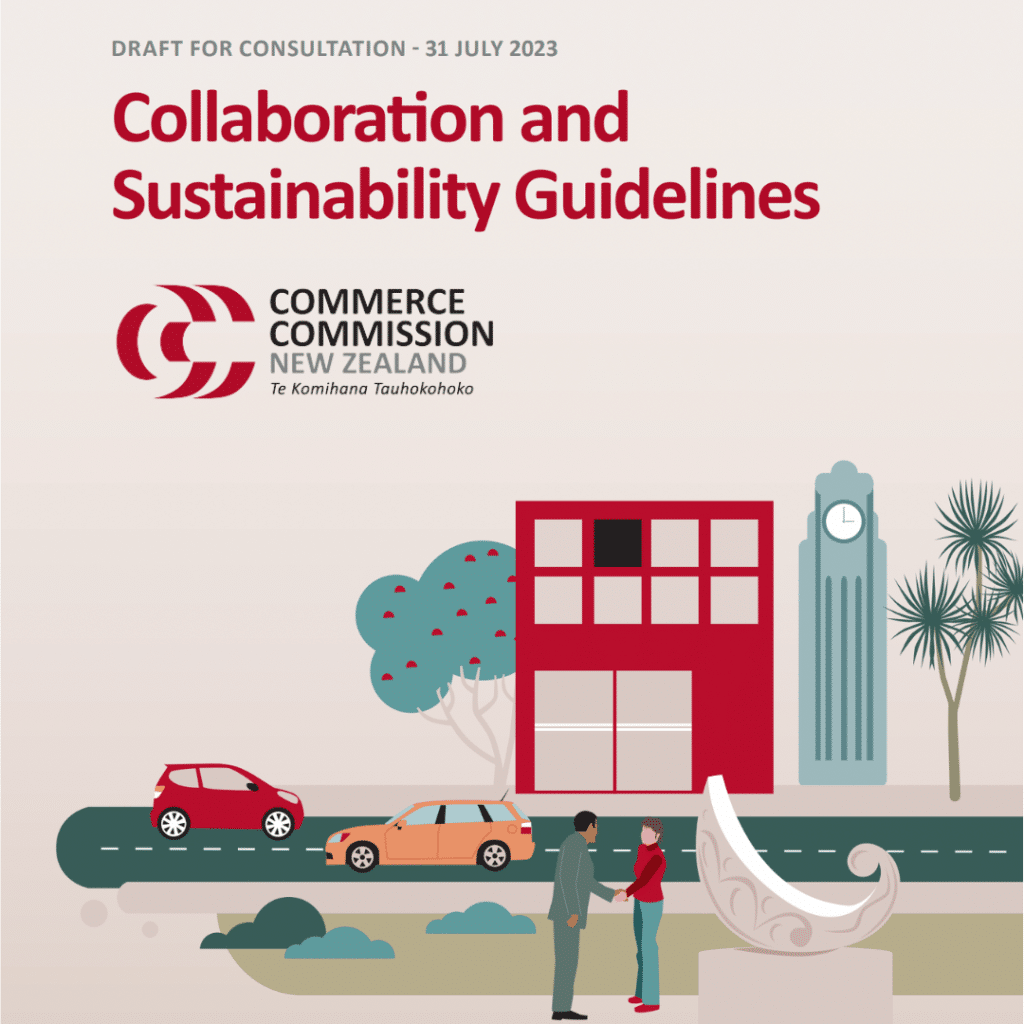Eco Choice Aotearoa has submitted feedback on the Commerce Commission’s draft Collaboration and Sustainability Guidelines. The guidelines are intended to ensure ‘sustainability’ is not used as an excuse for anti-competitive behaviour. However, the ecolabel is concerned in their current form, the guidelines discourage the sort of radical collaboration needed to limit the effects of climate change and further environmental degradation.
As such, Eco Choice’s advice to the Commerce Commission is as follows:
1. Eco Choice Aotearoa believes radical collaboration is necessary to limit the effects of climate change and further environmental degradation. As such, it would like to see the Commerce Commission state explicitly at the beginning (rather than #16) of the document that the guidelines do not serve to discourage such partnerships but exist to ensure they are fair and transparent in nature.
2. The guidelines could be strengthened by providing more guidance around how businesses could ensure potential collaborations are open and transparent. For instance, making the terms of the collaboration publicly available and ensuring there is an opportunity for other businesses to participate too.
3. During their assessment, the Commerce Commission should consider whether the sustainability outcomes could be reasonably achieved without collaboration.
4. The Guidelines should place emphasis on the importance of stakeholder engagement (with environmental groups, other businesses, consumers etc.) when developing collaborations with sustainability objectives in mind.
5. The guidelines should consider where competition can have a negative effect; stifling progress and causing confusion among consumers. For example, encouraging multiple certifications to compete, instead of coalescing around a robust, single standard, recognised as best practice.
6. Eco Choice is particularly concerned by draft guideline #26.2. An agreement by a group of purchasers not to buy from a specific supplier that has unsustainable practices, should absolutely be encouraged. This is cornerstone of sustainable procurement and a key lever in influencing industry to do better and raise the bar.
7. Further, what is deemed ‘unsustainable’ should be ascertained with evidence-based research and, or existing environmental & social standards.
The Commerce Commission has advised the final version of the standards will be published sometime in October/ November this year.
